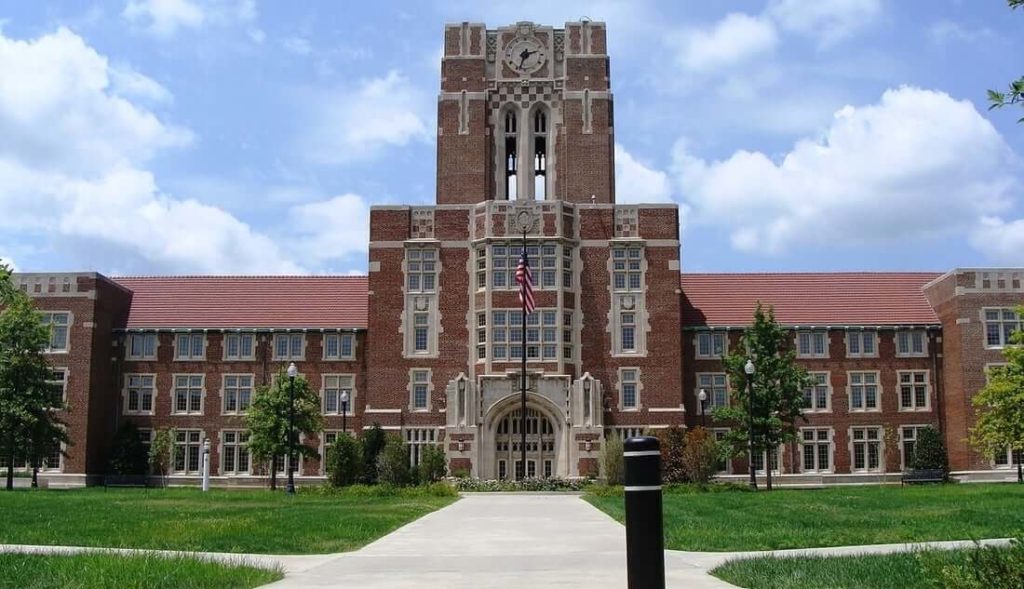
There are a number of medical schools in Tennessee that offer a great education and opportunity to transition seamlessly into your career.
While Tennessee is not a state that jumps to the top of everyone’s mind whey think of medical schools, that’s nothing to be concerned with. The medical schools in Tennessee are very underrated and have produced plenty of great doctors.
This list will go over all the Tennessee medical schools as well as acceptance information. By the time you’re done reading this, you’ll be ready to make a choice about where to apply!
East Tennessee State University James H. Quillen College of Medicine
- Location: Johnson City, TN
- GPA: 3.8
- MCAT: 509
- Tuition: $34,371 In-state, $67,790 Out-of-state
- Public/Private: Public
Ranked sixth among medical schools in primary and rural health care training by U.S. News & World Report, the East Tennessee State University James H. Quillen College of Medicine emphasizes educating future physicians to practice in underserved communities in northeast Tennessee and the surrounding Appalachian region. In a study published in the Annals of Internal Medicine, the college was also ranked first among the nation’s medical schools in producing primary care doctors. Located in Johnson City, the college is one of only two public medical schools in the state.
In addition to the M.D. degree, the school grants a dual M.D./M.P.H. degree and a Ph.D. in Biomedical Science. Your four-year M.D. program consists of two years of pre-clerkship training in the foundations of scientific information and an introduction to early clinical skills, followed by two years of clinical application. The five-year dual M.D./M.P.H. program involves three years of pursuing your M.D. degree, followed by one year concentrating on your M.P.H. degree and finishing your M.D. program the fifth year.
Meharry Medical College
- Location: Nashville, TN
- GPA: 3.54
- MCAT: 502
- Tuition: $55,114 In-state, $55,114 Out-of-state
- Public/Private: Private
Located in Nashville, Meharry Medical College was the first medical school in the South founded to educate African Americans. Housed on the college’s campus are the School of Medicine, the School of Dentistry, the School of Graduate Studies and Research, the School of Allied Health Professions, the Harold R. West Basic Sciences Center, the Metropolitan General Hospital of Nashville-Davidson County and the Robert Wood Johnson Center for Health Policy. Affiliated with the United Methodist Church, Meharry grants M.D., D.D.S., M.S., M.S.P.H., and Ph.D. degrees.
Researchers at Meharry focus on health issues that disproportionately affect minority and underserved populations. Cancer, women’s health, molecular and behavioral neuroscience, and HIV/AIDS are the four main areas of research. All medical students must participate in an eight-week research program in order to graduate. In addition to the required research program, students may choose from a combined one-year research/clinical experience, a number of summer research options or a research elective.
University of Tennessee Health Science Center College of Medicine
- Location: Memphis, TN
- GPA: 3.83
- MCAT: 512
- Tuition: $35,714 In-state, $68,806 Out-of-state
- Public/Private: Public
In addition to being the largest medical school in Tennessee, the University of Tennessee Health Science Center College of Medicine is one of only two public medical colleges in the state. The school maintains campuses in Memphis, Knoxville, and Chattanooga. Among the college’s noteworthy areas are its burn center, its three trauma centers, its transplant institute, and its mobile stroke unit.
You have a wide range of programs from which to choose at the college, including the M.D., the M.D./Ph.D., the physician assistant, and the health career programs. You also can choose between a Master’s in Pharmacology or a Master of Science in Epidemiology. You’ll spend your first two years toward your M.D. degree at the Memphis campus and your final two years experiencing clinical rotation at all three campuses. Once you’ve earned your degree, you have the opportunity to continue your medical education in such unique areas as culinary medicine.
Vanderbilt University School of Medicine
- Location: Nashville, TN
- GPA: 3.93
- MCAT: 521
- Tuition: $56,265 In-state, $56,265 Out-of-state
- Public/Private: Private
One of the nation’s largest academic medical centers, Vanderbilt University School of Medicine serves patients all across the mid-South region. Located in Nashville, the school is accredited by the Southern Association of Colleges and Schools Commission on Colleges. Vanderbilt University School of Medicine ranks high among the nation’s medical educational institutions with a ranking of 14th in research by U.S. News & World Report and a ranking of eighth in grant support from the National Institute of Health, or NIH.
In addition to the M.D. degree, the school offers doctor’s degrees in audiology and medical physics, Master’s of Science in Applied Clinical Information, Clinical Investigation, Medical Physics, and Speech-Language Pathology and Master’s of Education of the Deaf, Laboratory Investigation and Public Health plus nine dual-degree programs. Your first year toward your M.D. degree will focus on the foundations of medical knowledge. You’ll then study the foundations of clinical care during your second year. Your post-clerkship third and fourth years will be geared toward your individual interests.
DeBusk College of Osteopathic Medicine
- Location: Harrogate, TN
- GPA: N/A
- MCAT: N/A
- Tuition: $51,140 In-state, $51,140 Out-of-state
- Public/Private: Private
Committed to providing health care to underserved patients in the Appalachian region, Lincoln Memorial University’s DeBusk College of Osteopathic Medicine grants doctor’s degrees in osteopathic medicine and occupational and physical therapy and a Ph.D. in Clinical Anatomy. There’s also a four-year D.O./M.B.A. program designed for students who want a combined physician’s/business education. The college is accredited by the Southern Association of Colleges and Schools and the Commission on Osteopathic College Accreditation.
You can pursue your D.O. degree at either Knoxville or Harrogate. Your two-phase, four-year curriculum focuses on meeting the health needs of the entire person, including health maintenance and disease prevention. You’ll spend your first two years studying preclinical sciences and your final two years participating in clinical experiences in both office and hospital settings.
Taking The Next Step
Now that you understand the landscape when it comes to medical schools in Tennessee, it’s time to take the next step.
Think about what schools you would like to apply to, and how realistic your chances are of being accepted right now. It’s good to have this in mind before you take action.
If there’s a school you would like to attend but aren’t 100% sure you’ll get in, give us a shout. We’ve helped hundreds of students get accepted into their dream schools and would love to do the same for you!




